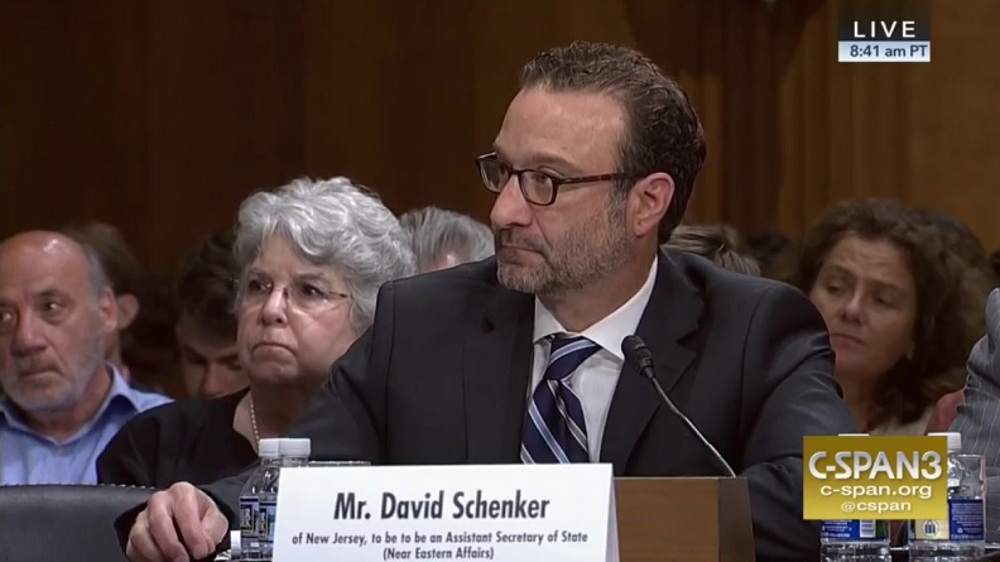
US Assistant Secretary of State for Near Eastern Affairs David Schenker (File photo)
A top US diplomat has called on Washington’s Arab allies in the Persian Gulf to perform due diligence in their relationship with the United States, while dealing with its rival, China.
US Assistant Secretary of State for Near Eastern Affairs, David Schenker, said on Thursday that the Arab governments need to weigh the value of their partnership with the United States.
We want our partner nations to do due diligence, Schenker told Reuters by phone.
His remarks came as several Arab states have hailed China’s handling of the coronavirus pandemic.
Beijing has also sent medical supplies and experts to countries around the globe, including some Arab nations to help fight the virus outbreak.
The US diplomat, however, said the countries in the Middle East need to be wary of China’s assistance which he alleged to be predatory.
The new coronavirus, which first emerged in China late last year, quickly spread to the rest of the world.
It has so far infected 3,918,710 people and killed 270,765 worldwide.
The US, which stands on the top of the world’s most affected countries - with 1,292,850 confirmed cases and 76,938 deaths - continues to blame China for the virus outbreak.
US President Donald Trump keeps referring to the coronavirus as the Chinese virus and Beijing has hit back by suggesting that the US military brought the virus to Wuhan and initiated the outbreak.
Over the past weeks, Trump and his Secretary of State Mike Pompeo have claimed that there is evidence Beijing created the new coronavirus in a medical lab in the Chinese city of Wuhan.
This is while the US intelligence agencies say they have seen no evidence to show the virus is man-made.
On the other hand, the US, which is now struggling to counter China’s land-based cruise and ballistic missiles, has been planning to deploy long-range, ground-launched cruise missiles in the Asia-Pacific region.
In the meantime, reports have come in that the US has decided to withdraw two of its four Patriot interceptor batteries from Saudi Arabia and another two such missile systems from elsewhere in the Middle East.
While Washington was distracted by almost two decades of war in the Middle East and Afghanistan, China had built a missile force designed to attack US aircraft carriers in the region, Reuters said in a series of reports last year.
China’ shipyards built the world’s biggest navy, which is now capable of dominating the country’s coastal waters and keeping US forces at bay, according to Reuters.
It said, in most categories, China’s missiles now rival or outperform counterparts in the armories of the US alliance.
In a recent development, Trump called for effective arms control that includes China and Russia during a telephone call with his Russian counterpart, Vladimir Putin, on Wednesday.
President Trump reaffirmed that the United States is committed to effective arms control that includes not only Russia, but also China, and looks forward to future discussions to avoid a costly arms race, according to the White House spokesperson Judd Deere.
Trump has long-sought China’s inclusion in a renewal of the New START nuclear arms treaty, which expires in February 2021.
Beijing, however, has rejected calls for joining the pact, which limits the number of land and sea-based nuclear missile launchers that the US and Russia can deploy.
The arrangement between Washington and Moscow also caps the number of nuclear warheads each country can deploy to 1,550.
SOURCE: PRESS TV
LINK: https://www.ansarpress.com/english/17172
TAGS:






























 online news tv
online news tv




